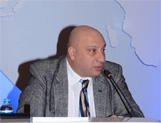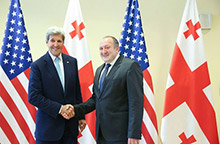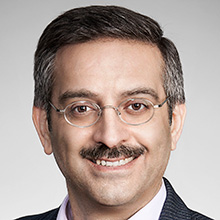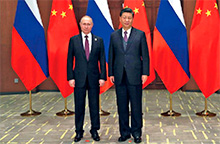
Is Armenia’s Democracy on Borrowed Time?  By Anna Ohanyan, PhD, non-resident senior scholar in the Russia and Eurasia Program of Carnegie
By Anna Ohanyan, PhD, non-resident senior scholar in the Russia and Eurasia Program of Carnegie
Reeling from a military defeat in a war with Turkey-backed Azerbaijan, can Armenia’s hard-won democracy withstand domestic political turmoil?
The recent agreement to cease hostilities in Nagorno-Karabakh has created a new status quo in the South Caucasus. Azerbaijan has recovered territories it lost in the 1990s when the conflict over the enclave first erupted, in the shadow of the Soviet collapse. A new modus vivendi between Russia and Turkey is shaping regional geopolitics. Once shaky authoritarian rule in Azerbaijan is now more deeply entrenched. It can also count on the support of Turkey, another increasingly authoritarian player in the neighbourhood. This stronger and deeper authoritarian presence in the region will place significant stress on nascent democracies in Georgia and Armenia for years to come. READ MORE
- EGF Editor |
Published on EGF: 16.12.2020
| External Relations
-
Economic Consequences of the Second Karabakh War for Armenia  By Benyamin Poghosyan, PhD, Chairman, Center for Political and Economic Strategic Studies
By Benyamin Poghosyan, PhD, Chairman, Center for Political and Economic Strategic Studies
The second Karabakh war ended with Armenia's capitulation. The unrecognized Nagorno Karabakh Republic lost approximately 75 percent of its territories, including parts of the former Nagorno Karabakh Autonomous Region within its 1988 borders. However, despite the clear defeat of Armenia, the conflict has not been solved. Azerbaijan was not able to invade the whole territory of Nagorno Karabakh and currently, some 3000 square km of the territory is being controlled by Russian peacekeepers effectively creating a de facto Russian protectorate. READ MORE
- EGF Editor |
Published on EGF: 16.12.2020
| External Relations
-
Why Armenians are Disappointed with NATO and the EU  By Benyamin Poghosyan, PhD, Chairman, Center for Political and Economic Strategic Studies
By Benyamin Poghosyan, PhD, Chairman, Center for Political and Economic Strategic Studies
Despite being firmly anchored in the Russian sphere of influence, Armenia has been quite successful in developing partner relations with the EU and NATO. In the early 1990s, Armenia joined the NATO Partnership for Peace program, and since 2005 bilateral relations have been developing within Individual Partnership Actions Plans. NATO played a key role in developing Armenia's peacekeeping potential and supported defence reforms, including defence education. Armenian peacekeepers participated in NATO-led operations in Iraq, Kosovo, and Afghanistan; Armenian troops took part in several NATO-led drills; and each year a "NATO Week" was held in Yerevan. READ MORE
- EGF Editor |
Published on EGF: 09.12.2020
| External Relations
-
Political Crisis in Georgia after the Parliamentary Elections  By Nika Chitadze, PhD, Professor at the International University of the Black Sea, Tbilisi
By Nika Chitadze, PhD, Professor at the International University of the Black Sea, Tbilisi
As it is well known from recent media reports, a new political crisis has emerged in Georgia after the October 31, 2020 parliamentary elections. The main reason for this crisis is the fact that the opposition parties have claimed that the Central Election Commission and the ruling party “Georgian Dream” have falsified the election results and have usurped the power. The National Democratic Institute and the American Republican Institute have expressed their critical views in this regard. A relatively soft position was stated by the OSCE Office for Democracy and Human Rights and the Council of Europe.
READ MORE
- EGF Editor |
Published on EGF: 09.12.2020
| External Relations
-
Nagorno-Karabakh Becomes Russia's Latest Protectorate in the South Caucasus  By Benyamin Poghosyan, PhD, Chairman, Center for Political and Economic Strategic Studies
By Benyamin Poghosyan, PhD, Chairman, Center for Political and Economic Strategic Studies
Azerbaijan, Turkey, and Russia all gained something as a result of the second Karabakh war, while Armenia and Nagorno-Karabakh lost almost everything.
The second Karabakh war ended with catastrophic results for Armenia and the Nagorno-Karabakh Republic. The trilateral statement signed by Russian, Armenian, and Azerbaijani leaders on November 10 was a clear capitulation of the Armenian sides. During the 26 long years of negotiations under the auspices of the OSCE Minsk Group, several settlement plans have been elaborated and offered to the conflict sides […]. However, none of them were as disastrous for Armenia and the Nagorno-Karabakh Republic as the trilateral statement of November 10, 2020. READ MORE
- EGF Editor |
Published on EGF: 26.11.2020
| External Relations
-
United States-Georgia Charter on Strategic Partnership: Defence and Security  By Eugene Kogan, Tbilisi-based defence and security expert
By Eugene Kogan, Tbilisi-based defence and security expert
Established in 2009, the United States-Georgia Charter on Strategic Partnership is based on four core pillars: Defense and Security Cooperation; Economic, Trade and Energy Cooperation; Strengthening Democracy; and Increasing People-to-People and Cultural Exchanges. As part of these two countries’ defence and security cooperation, the US provides financial support to the Georgian military, support for Georgia’s territorial defence and sovereignty, and, ultimately, for Georgia’s procurement of US defensive weapons. READ MORE
- EGF Editor |
Published on EGF: 25.11.2020
| External Relations
-
After the Elections, Georgia Needs to Walk Carefully on a Regional Tight Rope  By Benyamin Poghosyan, PhD, Chairman, Center for Political and Economic Strategic Studies
By Benyamin Poghosyan, PhD, Chairman, Center for Political and Economic Strategic Studies
On October 31, 2020, Parliamentary elections took place in Georgia. Since 2012 Georgian politics is often perceived as a two-men show - billionaire Bidzina Ivanishvili and former President Mikhail Saakashvili. In 2012, Mr. Ivanishvili made a surprisingly successful bid to win Parliamentary elections and ousted President Saakashvili's United National Movement (UNM) party from power. Saakashvili left Georgia in 2013 after the end of his second Presidential term and entered Ukrainian politics becoming the governor of the Odesa region. […] Meanwhile, several criminal investigations were opened against him in Georgia, and a court sentenced him in absentia to several years of imprisonment. Mr. Ivanishvili left the Prime Minister's position in late 2013, but continued to de facto govern Georgia through the ruling Georgian Dream (GD) party. READ MORE
- EGF Editor |
Published on EGF: 10.11.2020
| External Relations
-
China, Russia and the EU: Forging a Cooperative Relationship  By Elkhan Nuriyev, PhD, Eastern Europe-Global Area (EEGA) fellow at Leipzig University
By Elkhan Nuriyev, PhD, Eastern Europe-Global Area (EEGA) fellow at Leipzig University
For Russia, China’s Belt and Road Initiative is less of a threat than an opportunity. Moscow is receptive to the BRI’s ability to help create a multipolar world as it bolsters China’s global stance to counterbalance American hegemony. The Kremlin also views the BRI as a means to attract Chinese investment and foster renewed Russian influence over the European Union’s eastern zone. One of the important buckles of the Silk Road Economic Belt – the overland component of China’s ambitious Belt and Road Initiative (BRI) – is the Eastern Partnership (EaP) region, which represents an essential link between Asia and Europe. Developing this stage means enhancing commercial relations with six partner countries and an infusion of investment funds in several emerging-market economies. READ MORE
- EGF Editor |
Published on EGF: 23.09.2020
| External Relations
-
Iran–Turkey Rivalry in the Middle East: The Case of Lebanon  By Benyamin Poghosyan, PhD, Chairman, Center for Political and Economic Strategic Studies
By Benyamin Poghosyan, PhD, Chairman, Center for Political and Economic Strategic Studies
Iran and Turkey have a long history of rivalry in the Middle East. As two key regional powers, they were vying for influence and seeking to expand their spheres of influence. After WWII both Iran and Turkey had an anti-Soviet attitude and participated in the Central Treaty Organization with the key goal to contain the Soviet Union. The Cold War has halted bilateral competition, while the 1979 Islamic Revolution in Iran has significantly changed the regional balance of power. READ MORE
- EGF Editor |
Published on EGF: 12.09.2020
| External Relations
-
The True Nature of Sino-Russian Relations  By Eugene Kogan, Tbilisi-based defence and security expert
By Eugene Kogan, Tbilisi-based defence and security expert
While Russia is certainly viewed by Beijing as a reliable economic and trade partner with its oil, gas and arms exports to China, the Chinese do certainly not overemphasise this relationship. Instead, China sees Russia as a waning power with its vast territories, supported by armed forces and nuclear weapons, while at the same time prone to endemic corruption and unable to pursue meaningful economic, political and social reforms. READ MORE
- EGF Editor |
Published on EGF: 12.09.2020
| External Relations
-
